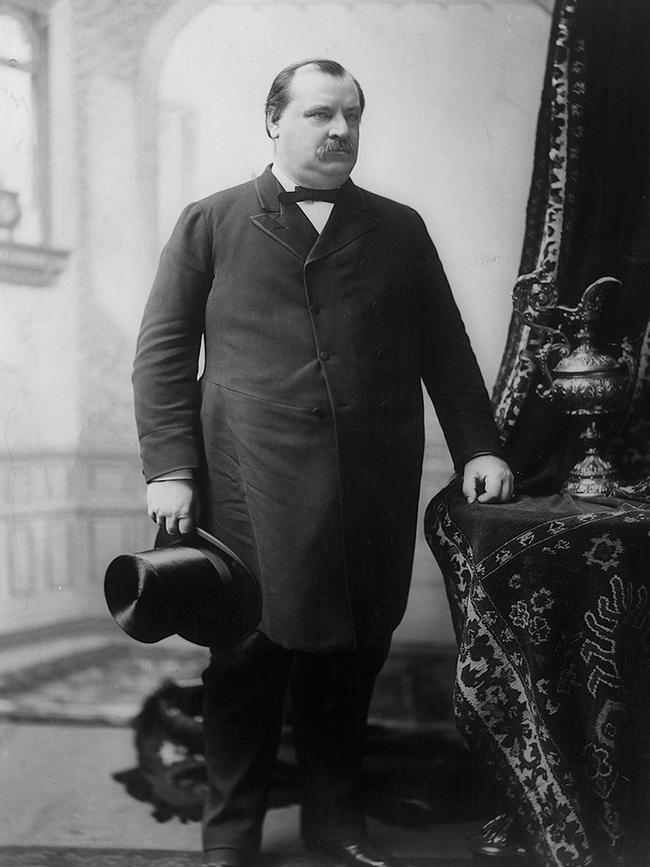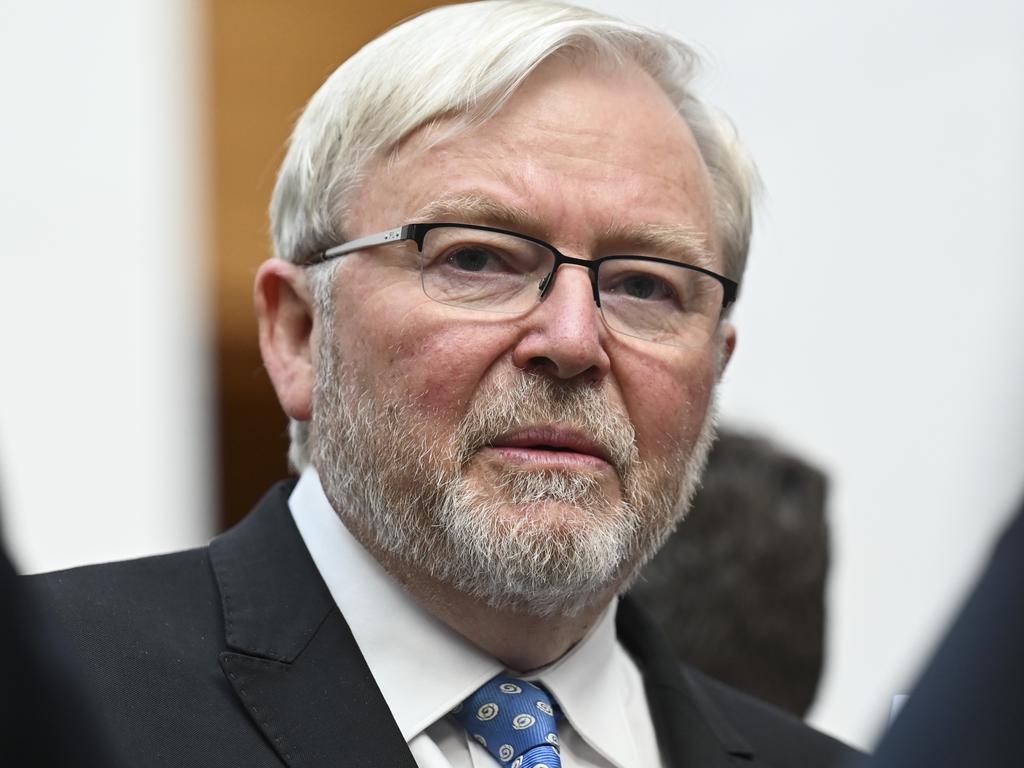Americans in for a rough ride as election heats up

Even when comfortably seated listening to a grand old man of US foreign policy, ambassador John Negroponte, it is impossible for an Australian visitor to escape the spectre not only of the burglaries but also of the misdeeds of the Nixon campaign in 1972.

One of the most appalling of the dirty tricks of that campaign occurred in Manchester, New Hampshire. Nixon feared the leading Democratic candidate for the party’s nomination, Senator Edmund S. Muskie of Maine. To damage Muskie’s candidacy, White House deputy director of communications, Ken W. Clawson, penned the so-called “Canuck Letter” under a false name and delivered it to the editor of the arch-conservative local newspaper, the Manchester Union Leader.
There were voters of French-Canadian origin in New Hampshire, and the “Canuck Letter” suggested that Muskie had made derogatory remarks about them. Exhausted, Muskie appeared to break down outside the offices of the Manchester Union Leader while denying any knowledge of the allegations. It was a grievous body blow to his candidacy and opened the way for senator George McGovern of South Dakota to win the Democratic nomination. Months later, The Washington Post proved the letter was a forgery.
New Hampshire is a boneyard for presidential ambitions.
Another political campaign corpse was interred this week in the Granite State. Florida Governor Ron DeSantis acknowledged both reality and reason by withdrawing from the Republican primary and proceeding to endorse Donald Trump, the undisputed frontrunner for the nomination.

DeSantis may recover in national politics for 2028, but he has a job in front of him. He ran an incoherent and lacklustre campaign that failed to ignite. DeSantis’s inability to attack Trump directly and draw a contrast shows that he did not understand the politics of American primaries.
Neither does Nikki Haley seem to appreciate that to win the Republican nomination she has to walk over Donald Trump. Haley appeals to a more highly educated section of the Republican constituency, but the party’s working-class base will not abide her challenge to Trump. The exit sign beckons.
These results and earlier withdrawals of candidates confirm that the US Republican Party is now essentially a Donald Trump cult. The base wants Trump on the ticket despite the fact that, since 2017, he has led the Republican Party to consistent defeats: for the White House; for the Senate; and for the House of Representatives, as well as a number of state offices.
Despite the ferocity of the Trump base’s devotion, Trump has been a loser for seven years, unable to piece together a majority coalition of voters. US history is against him, although he has never acknowledged its centrality in American political culture.
Only one president has ever returned to the Oval Office after losing an election. This was America’s 22nd and 24th president, Democrat Grover Cleveland, who occupied the White House from 1885 to 1889 and then subsequently from 1893 to 1897.

The reason for this is utterly straightforward; American politics moves on, and the parties must move with the voters.
However, the contest for November is now an unquestioned rematch between President Joe Biden and Trump. Many Americans across the aisle wish it were otherwise, including some 20-30 per cent of moderate Republicans, when polled. But the failure of the American political class to renew itself is on sharp display.
So in the immortal words of senator-elect Bill McKay (Robert Redford) in the classic 1972 movie, The Candidate, after he has been elected: “What do we do now?”
Trump has emerged from New Hampshire as the undisputed master of the Republican Party core, but he must consolidate that between now and American Labor Day in early September.
He recognises that the Democratic support around the President has frayed somewhat, and the White House will be seeking to rebuild the coalition that propelled Biden to a convincing win in 2020.
Trump needs the strength of the Republican base to build his momentum. After Labor Day, Republicans may be expected to try to broaden their coalition somewhat by being less aggressive and less belligerent in tone. Whether or not that works is a moot point.
For the Democrats, Trump emerging triumphantly is a political gift. All the critical elements of the Democratic constituency need to be brought back into the fold; especially women in the suburbs, young people and students, and minorities, including African Americans and Latinos.
Biden has time to do it, and reminding voters of the alternative of a repeat of the turmoil of the Trump presidency is a powerful argument.
To illustrate, as of writing, the Democrats have released new political commercials regarding reproductive healthcare. Trump has boasted how he was instrumental in “terminating” Roe v. Wade, and there is a political price to be paid for this arrogance.
An improving American economy is good news for the Biden White House, and if the Federal Reserve continues to cut interest rates, then there is cause for optimism among Democratic incumbents. The old adage, best expressed by James Carville for governor Bill Clinton’s campaign in 1992 – “It’s the economy, stupid” – still holds good.

There are other issues that have a significant impact. The state of the border, where chaos reigns, is often one. It has become serious in places, such that the tensions at Eagle Pass, Texas, provide some of the kindling required for a resumption of the Civil War. Federal and state authorities are locked in confrontation, but to its credit, the US Supreme Court has supported federal power. Negotiations in the House and Senate have failed so far to provide a comprehensive legislative solution, despite Biden’s intervention. Many commentators believe that the Republicans would prefer the issue to remain on the agenda for November.
Immigration is an issue that runs down Main Street, America.
Given the shifting international situation, it is no surprise that foreign policy intrudes deeply into this election; the Israel/Hamas conflict, in which Biden has been a steadfast supporter of Israel, has had an impact, particularly among some Democrats.
The stalemate in Ukraine is matched only by the stalemate in the US congress on the provision of further aid. As a backdrop to all of America’s international engagements, especially with Taiwan, China is also ever-present.
In the Kremlin, they wait for Trump. As with Vladimir and Estragon in Samuel Beckett’s superb play Waiting for Godot, the Russians seem immobilised by what might happen.
Trump needs the legal presence of Perry Mason and the navigational skills of James Cook to avoid the judicial shoals in various courtrooms. He treats the courts as merely another weigh-station in his campaign, but unsurprisingly, judges seem not to share that view.
It is almost certain that Trump will suffer further legal reverses between now and November. Appeals will be in the air, but some American voters may well think again about the Republican nominee should he be convicted over the turmoil of January 6 or the case of the confidential documents at Mar-a-Lago, let alone alleged electoral interference in Georgia.
This is uncharted water, even by Trump’s standards.
Biden has his own legal dramas, with his son Hunter before both congress and the courts.

Currently, there is virtually no evidence to link Hunter Biden’s business dealings with the President or the White House more broadly. But the Biden legal agonies will be, at best, diverting and at worst damaging to the President.
The wild cards in this presidential election are to be found outside the mainstream parties. They include a possible run by Senator Joe Manchin (Democrat, West Virginia) on a “no labels” ticket. This has been promoted by former senator Joe Lieberman (Democrat, Connecticut), who was Al Gore’s running mate in 2000. It may go nowhere, but were Manchin to run, he would be a distraction for some blue-collar Democrats.
Jill Stein of the Green Party is also on the presidential ballot, raising environmental issues in the margins. Finally, conspiracy theorists will be pleased if Robert F. Kennedy Jr, son of the former American political icon, senator “Bobby” Kennedy, enters the fray.
Kennedy may be expected to run on a platform that elevates anti-vaccination memes for the first time ever into a presidential contest.
Third-party candidates cannot be simply disregarded; George Wallace (1968), H. R. Perot (1992) and Ralph Nader (2000) changed the course of the American presidency.
A few per cent of votes changing hands, or parties, makes a great difference, especially in a battleground state.
Richard Nixon understood just how close most presidential contests were, given his slender loss to Jack Kennedy in 1960. This campaign pressure led inexorably to the abuses of power during his administration.
The Watergate is now a symbol of American resilience, the kind of resilience that will be required to see the US through this coming presidential contest.
Stephen Loosley is the former chair of the Australian Strategic Policy Institute, Canberra.






The ghost of Richard Milhous Nixon still walks the corridors of the Watergate complex in Washington DC. So, too, do the deeds of his White House and the notorious Committee to Re-Elect the President (“CREEP”).